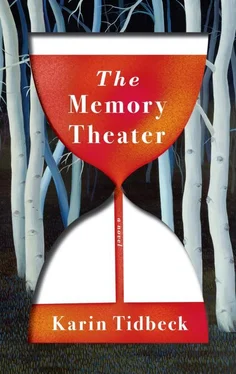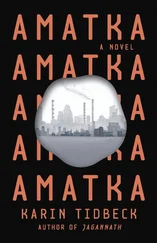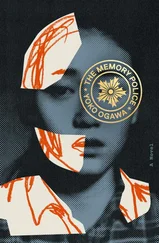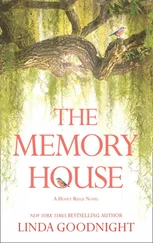Dora had a sudden urge to clap her hands. She did. The people on the bridge looked down at them.
“It’s an actual audience,” Apprentice said.
“Yes, it is,” Director said. “Who are you?”
“We already told you,” Dora replied.
“You told the Priestess and her aides. You didn’t tell us. ”
“I’m Dora. He’s Thistle.”
“I apologize, madam,” Thistle said. “She is very direct.”
“Oh, that’s okay.” Director shrugged. “We’re not exactly people with manners.”
She looked Thistle up and down, and then Dora. “How did you get here?”
“We walked,” Dora replied.
“I see. From where?”
“The other side of the lake. And the crossroads.”
Director nodded. “And your purpose?”
“We’re looking for someone,” Dora said.
“Who?”
“A theater troupe. Ghorbi said we’d know them when we saw them,” Thistle said.
“Ghorbi,” Nestor muttered.
Director arched an eyebrow. “I see. Then allow me to really introduce us.” She threw her arms out. “We are the Memory Theater.”
Behind her, the others bowed again.
“We play stories so that they may be remembered,” Director continued. “We play true stories. We write them into the book of the universe, if you will, or weave them into the tapestry, if that sounds better. When we do that, the event will live on. It is recorded and will always have happened. Like here: Knut Olesen’s death, recorded.”
“But we usually don’t have an audience,” Journeyman said.
“A visible audience,” said Nestor, and scowled at him. “The universe is watching.”
“So this is quite an occasion,” Director finished.
There was a short moment of silence in which the troupe and the siblings looked at each other. Dora’s stomach rumbled.
“I’m hungry,” Dora said. “Do you have food?”
Director broke into a smile. “Of course we do! To the wagon.”
The troupe marched over to the mysterious house on wheels. They walked up the stairs, and Journeyman fiddled with the center window. Somehow he unhooked it, then pushed. The whole wall to the right of the window folded and slid aside on rails. Director grabbed the left section and pushed it the other way. What had from the outside looked like an empty space was now a cluttered dressing room, with vanity tables, several stuffed armchairs, and a tiny kitchen with an iron stove next to the open wall. The four actors climbed inside and walked over to the four armoires that covered the back wall, where they unceremoniously stripped naked and changed into blue coveralls. Journeyman was done first and opened a cupboard next to the stove, where he started getting out pots and pans.
“Complimentary dinner for our guests!” Director shouted from where she was buttoning her coveralls.
Pinax was always at home when Augusta came to call. They would always let her in.
Pinax’s home was meticulously ordered but mutable. They were constantly rearranging the books according to different systems: binding, author, category, first sentence in alphabetical order, last sentence in alphabetical order, longest beginning sentence, authors who knew each other. Augusta watched and ate cakes.
Pinax spoke of cities they had lived in, libraries they had visited, and creatures they had encountered: ulda, jinns, strigoi, bacchantes, wordless creatures at the edge of civilization like Pyret and Mörksuggan. These were fascinating stories, but Pinax still wouldn’t talk about Augusta’s request to help her find Phantasos. They turned to stories about the current age: kings, queens, countries at war. That the streets were dark at night because flying machines might come to drop bombs. These were all important things Pinax apparently thought Augusta should know.
They lent Augusta a book on etiquette, and she read it with some difficulty. These were the codes that humans here lived by, and that Pinax for some reason found important. Most of them were random and pointless, with the exception of how to address superiors, of which Augusta approved. The purpose of etiquette was clear: it was about how to flatter people, which in turn would make them well disposed toward you, which meant you could make them do things for you. It was about wheedling. Well, Augusta could wheedle. She tried some of the suggested techniques on Pinax: she complimented them on their immaculate shoes and manicured nails, and asked how their day was. Pinax brightened visibly, which was encouraging. Augusta tried the same on some of the wood-lice people in the street, but they scurried away without reply. Perhaps they were too intimidated; despite her simple attire, Augusta still radiated magnificence.
She stopped asking Pinax to tell the rest of the library story. Instead, she listened to even more stories, lectures on how to engage with people, even how to cook. Augusta engaged with people. She found a building from which, an elderly gentleman told her, trains transported people to faraway places. You bought a slip of paper to travel on them. Augusta didn’t have any money. She didn’t need it: she enthralled shopkeepers to hand her new clothes. She could have whatever she wanted from the stores. Fashion—except for suits—was horrible, and food everywhere was dull because of this “rationing.” Technology was interesting, however: engines, bicycles, cars, electric lights. Augusta especially liked trains, although she had yet to figure out where she would go. Perhaps she would take a train to Phantasos.
At night she went back to her little house, where her servant was waiting by the stove. Augusta asked him about the things she had seen during the day, but the boy was next to useless except when it came to cooking. His face had been printed on a newspaper that the man on the corner sold. He could not be let out of the house again. Augusta killed him and found another.
Pinax smiled more often, made jokes, and explained them when Augusta missed the fine points. It seemed to Augusta that perhaps this was friendship, even though Pinax had yet to give her what she needed.
The weather grew cooler, and the rosehips along Augusta’s street ripened into little orange fruits. When Augusta woke one afternoon and beautified herself with the little wax stick, she realized that something was happening to her face. Faint lines radiated from her eyes and spread across her forehead, and shallow grooves ran from her nostrils to the corners of her mouth. She was aging.
She brought Pinax a box of arrak rolls.
“I have waited and waited,” Augusta said. “Something is wrong with my face now.”
“Yes, you have waited for a month,” Pinax replied. “You have been very patient. Come inside.”
—
“Would you like to see it?” they asked as they drank their tea.
“Would I like to see what?” Augusta replied.
“The library.”
“We’re in it.”
“Not this library,” Pinax said. “The library from the story.”
Pinax led her into the study next to the sitting room, where they opened a door. Inside, a set of stairs wound down into a dimly lit passage that smelled of smoke. The air was noticeably warmer here. Augusta followed Pinax for what could have been fifty steps or a hundred until they reached a pair of wooden double doors. They swung open on well-oiled hinges, and the heat hit Augusta’s face like a wall.
The room might have been ten meters across. Shelves lined the stone walls from top to bottom, crammed with all kinds of writing. There were rolls, codices of bamboo, vellum, and wood, stacks and rows of clay tablets, inscribed bone plates. The air was dry and stank of burning paper. A roar filled the room, the sound of fire raging on the other side of the walls. Augusta heard muffled shouts in some unfamiliar language. She walked along the shelves, trailing her fingers over books and rolls and stacks.
Читать дальше










![Карин Тидбек - Аматка [ЛП]](/books/438406/karin-tidbek-amatka-lp-thumb.webp)

